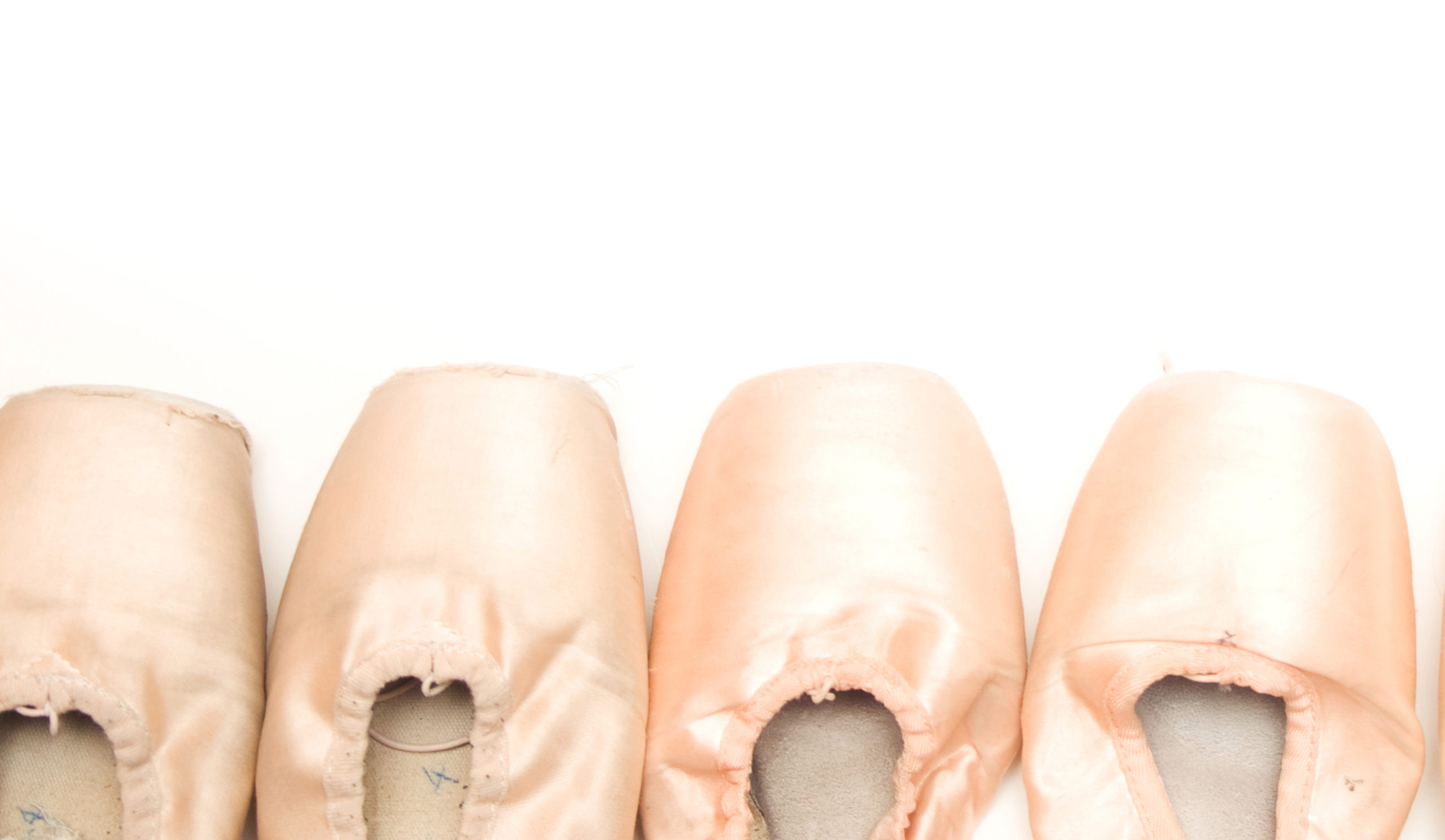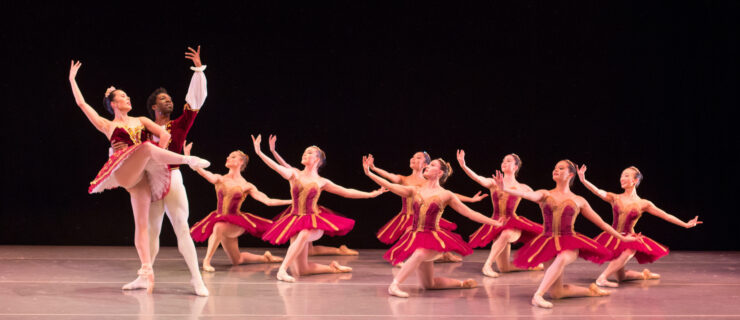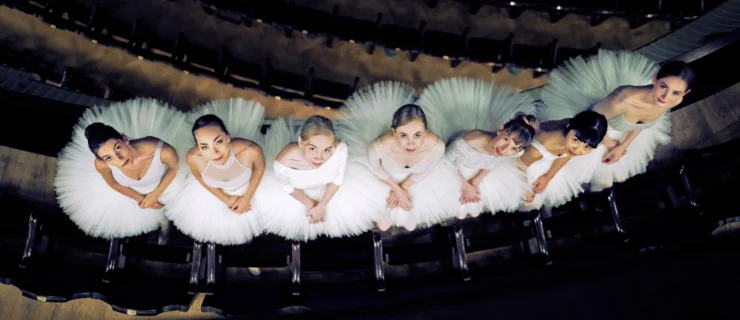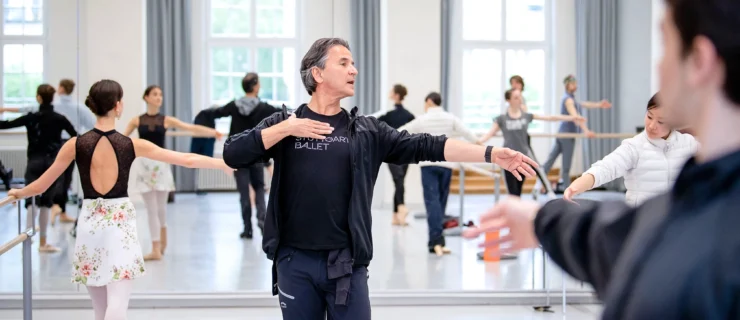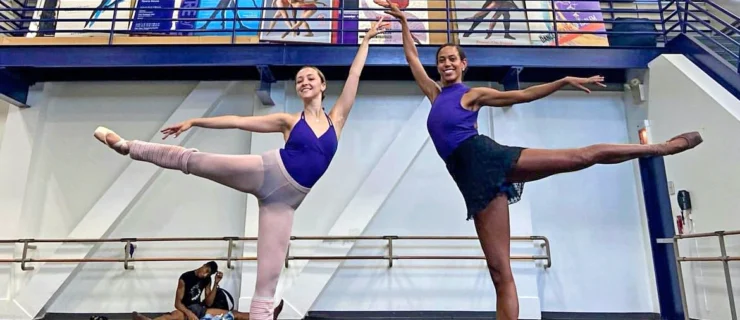The Private Lesson Debate
When Melissa Hough shifted her focus from her competition studio to the demanding Kirov Academy of Ballet in Washington, DC, she felt she needed more than regular classes to catch up. Newly committed to pursuing a ballet career, she sought private lessons outside of the school, working on fixing bad habits, like her tendency to pronate her feet. “I had been dancing a certain way for so long,” says Hough, now a first soloist with Houston Ballet. “Taking privates enhanced all of the work I was doing on my ballet technique.”
Deciding whether private lessons make sense takes assessing your own training and efforts honestly. If you have been giving classes your all but keep falling short of your goals, you might need to consider getting help from a different teacher. In some cases, you may need to leave your current studio or training program. More often, it’s a matter of getting some one-on-one attention. But navigating the world of private lessons can be tricky, especially if your new teacher has a different approach than your main program. You need to show respect for your program, while getting the extra guidance that will help you improve.
Focus Your Goals
Finding a private teacher starts with looking at your current contacts—guest faculty, former summer intensive connections and notable coaches in your area. Be clear about the problems you want to address. Royal Ballet first artist Meaghan Hinkis, who trained at American Ballet Theatre’s Jacqueline Kennedy Onassis School, started taking lessons at age 12 with New York City master teacher Fabrice Herrault. She felt that she had hit a plateau in her training and wanted to polish the small details of her barre and center work. “The simplest things tend to be the most difficult,” she says. “Hearing the same correction said in a different way can be the trigger you need for an idea to sink in.”
When she was a student, ABT corps member Skylar Brandt looked for teachers who were experts in specific styles, like former Bolshoi Ballet dancer Valentina Kozlova, former New York City Ballet soloist Diana White, former ABT principal Susan Jaffe and the French-trained Herrault. “Pursuing different methods and approaches helps create a well-rounded technique,” she says.
Keep in mind, though, that if you want to become truly proficient in one style, adding new teachers to your roster may hinder your purity, which is one reason why many schools discourage it. “Whether you’re 8 or 18, taking classes from other teachers will confuse you,” says Kay Mazzo, co-chairman of faculty at the renowned School of American Ballet. “Then we have to reteach what you’ve already learned and you’re actually taking steps back.” Additionally,if your dream is to join a school’s affiliated company, you don’t want them to think your interests lie elsewhere.
Finding Balance
If you want to seek extra training outside your program, discuss it first with your teachers and school director. While SAB frowns on private lessons, many programs permit students to seek outside help, providing they show real commitment to their core training. “Most of the drama surrounding privates can be prevented if you just don’t go behind your school’s back,” says Brandt. It’s a tough conversation, but don’t try to outsmart your teachers by skirting the issue. Someone who has trained you for years will immediately see if you start approaching the work differently. “Sometimes there were other students taking privates who brought a new habit or arm coordination into a teacher’s classroom and they were not pleased,” says Brandt. “You have to show the faculty you respect what they think and you need to maintain the style of your school’s training.”
Privates can also result in emotional backlash from directors and teachers. They put time and effort into shaping their students’ technique and can feel like a student has turned her back on their approach. “I had to take a lot of flack,” says Hough. She adds, though, that dealing with the conflict helped prepare her for the politics of professional life. Every training program has its priorities; gauge them carefully to determine whether going outside will create a minor or a major issue.
Are You Ready?
Venturing into the world of privates means taking a critical look at where you are in your training. Peter Brandenhoff, who has taught dancers from major programs in California and New York City, reminds young dancers to be patient. (He doesn’t recommend privates for students under 12, though many professional dancers, including Brandt, started taking them as early as age 8.) “The dancer should have a basic foundation in place so that the private teacher can complement that,” he says. Hough agrees that it is important to feel confident and grounded with your work at your own school before sampling other teachers’ methods. “Expose yourself to as much as you can, but always have your consistent teacher. You need a base that you can come back to, and you have to learn the rules before you can break them,” she says.
The work you put into your training lies with you. You don’t want to jeopardize years of effort, but you must be an advocate for your technique—and your own best interests. “We have a finite amount of time in a dance career, so question everything your teachers say—none of us have all the final answers,” says Brandenhoff. “Teachers always say we know what’s best for our students, but, frankly, some students know more about themselves than their teachers.”
Kristin Schwab is an associate editor at
Dance Teacher magazine.
Troubleshooting One-on-One
Tailor private lessons to work on any personal training hurdles.
Polish your technique:
Royal Ballet first artist Meaghan Hinkis took private lessons to slow class down. She felt she needed a cleaner, more precise technical base. “Fine-tuning was the key,” she says. “My privates would follow a normal class from barre to center, but the combinations were never complicated.”
Push your skill level:
When you work one-on-one, there is always time for the 32-fouetté coda. “Privates provided a more intense, individualized version of everything,” says Houston Ballet first soloist Melissa Hough. “There were elements that I couldn’t do at first, but I had the opportunity to ask questions because it was just the two of us.”
Refine your artistry:
“In a big class you don’t have the luxury to work on the rep you want,” says American Ballet Theatre corps member Skylar Brandt. Working one-on-one allows you to tailor variations and dive deeper into characters.
Make connections:
“They don’t teach you this when you’re young, but networking is important to your career,” says Hough. “Working with someone may lead to opportunities in the future.”
